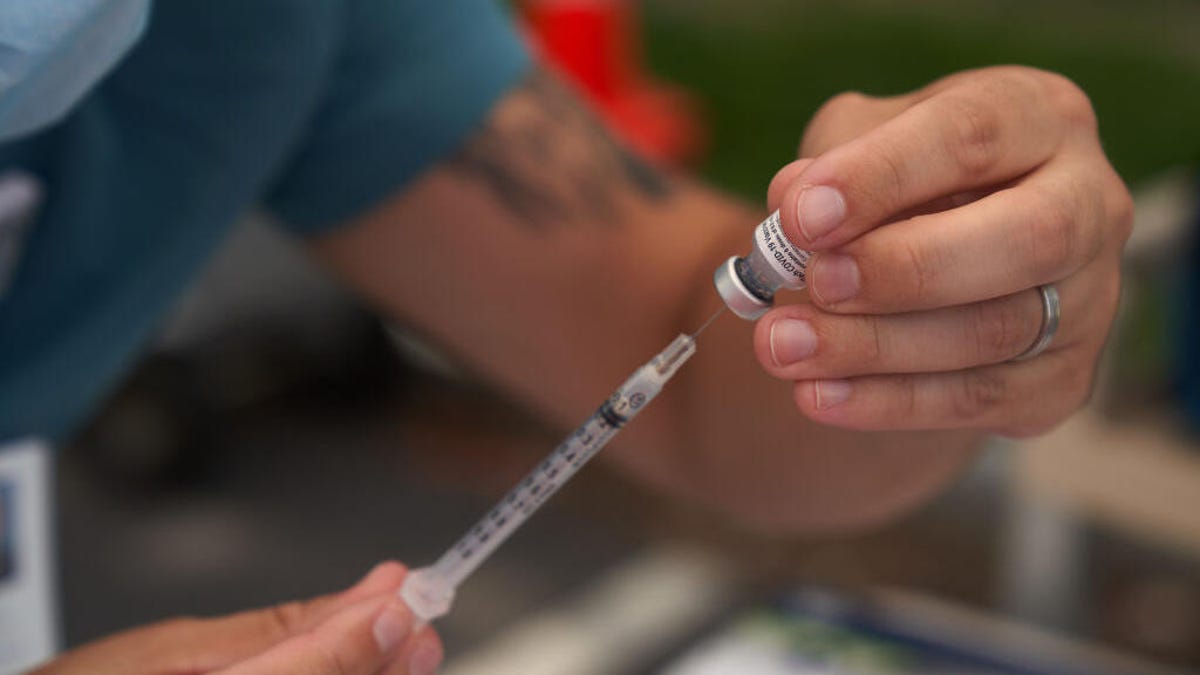Coronavirus booster: Americans could start getting extra vaccine dose in September
The Biden administration plans to announce that coronavirus booster shots will be needed to combat the delta variant, according to reports.

In the coming days, the Biden administration is expected to announce Americans should receive a vaccine booster shot.
Americans may be able to receive coronavirus vaccine booster shots in September, according to a report Monday in The New York Times. The Biden administration "has decided most Americans should get a coronavirus booster shot eight months after they completed their initial vaccination," the Times reported.
The decision hasn't yet been made public but could be announced as early as this week, with boosters starting to roll out by mid-September, administration officials told the Times.
Vaccines are the most effective way to protect against severe disease, hospitalization and death, but there are growing concerns over the highly transmissible delta variant. Delta has seen an uptick in breakthrough infections of vaccinated people and evidence is beginning to show it may diminish the effectiveness of vaccines. The emergence of the variant has spurred momentum to get vulnerable populations an extra dose of Pfizer and Moderna's mRNA vaccines.
The Food and Drug Administration on Aug. 12 approved booster shots for immunocompromised individuals. The Centers for Disease Control and Prevention doesn't currently recommend additional doses or booster shots for any other population. The FDA will need to approve an additional dosing strategy before the shots are made available to the general public. It's likely the first boosters would be administered to health care workers, the elderly and residents of nursing homes.
While the US is preparing to offer additional doses to the public, just over 1% of people living in low-income countries have received at least one vaccine dose. Israel has already begun its own campaign of booster shots, giving extra doses to those 60 years and older.
In early August, Tedros Adhanom Ghebreyesus, director-general of the WHO, called for a "moratorium" on administering boosters in wealthy countries until "at least the end of September" and asked that the majority of vaccine supply go to low-income countries.

